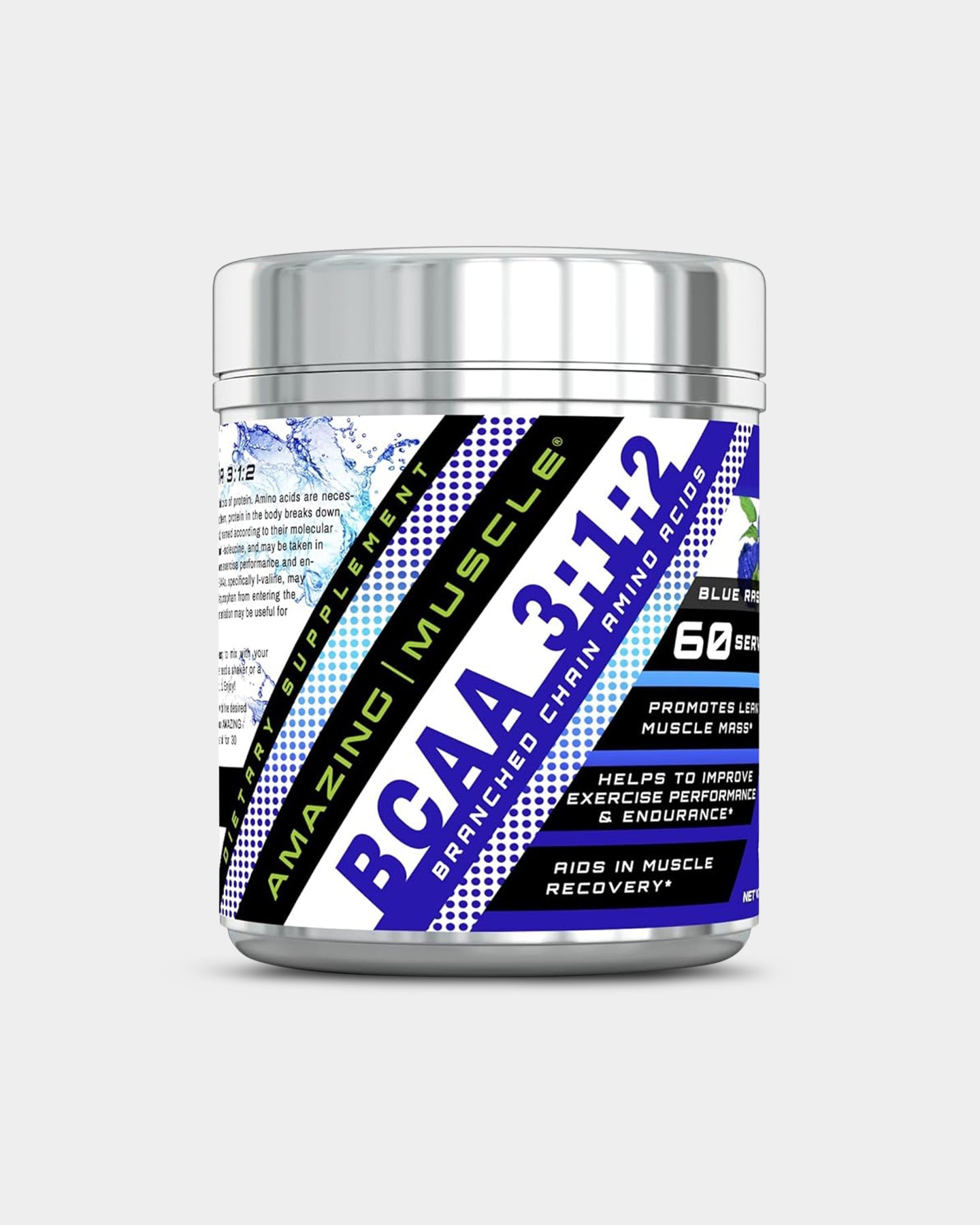Effective Ways to Use BCAA for Improved Muscle Recovery in 2025

Understanding BCAA and Their Benefits for Muscle Recovery
Building on the foundations of fitness supplements, branched-chain amino acids (BCAAs) have become essential for athletes and fitness enthusiasts seeking optimal muscle recovery. BCAAs consist of three specific amino acids: leucine, isoleucine, and valine. These are critical for muscle repair and growth, making them a vital component of any fitness routine.
BCAAs offer several benefits that can enhance recovery after strenuous workouts. These advantages include reducing muscle soreness, minimizing exercise fatigue, and providing energy during workouts (known as workout performance). By alleviating muscle fatigue and leveraging BCAA’s unique abilities, athletes can experience improvements in their training intensity and overall performance.
Additionally, BCAAs can play a significant role in promoting fat-free muscle growth (fettfreies Muskelwachstum) while helping to prevent muscle breakdown (Prävention Muskelabbau). As we delve deeper into BCAA supplementation, we will outline effective strategies for maximizing their impact on muscle recovery in 2025.
Key Attributes of BCAA Supplements
BCAA supplements primarily support protein metabolism, helping to stimulate muscle protein synthesis and repair. With the right BCAA products (BCAA Produkte), their consumption can significantly improve training outcomes for athletes as well as casual gym-goers. Understanding the balance of these amino acids allows for effective supplementation tailored to individual fitness goals and exercising methodologies.
Research has shown that BCAAs can be particularly effective at reducing exercise-induced muscle soreness (Muskelkater) and enhancing recovery after fitness sessions. This makes proper knowledge of their dosage, timing, and mechanism essential for achieving desired results in your fitness journey.
Optimal Dosage and Timing for BCAA Intake
With these basics established, let’s explore the optimal dosage and timing for BCAA intake to leverage its full benefits on muscle recovery. Many athletes benefit from following structured guidelines to ensure they are taking the right amounts of these important molecules.
Studies recommend a daily intake of 5 to 20 grams of BCAAs, depending on individual training intensity and frequency. The effectiveness of the supplementation also relies heavily on the timing of intake. Many experts recommend taking BCAAs before, during, or after workouts to enhance muscle repair and recovery.
Pre-Workout Consumption
Taking BCAAs before a workout can serve multiple purposes. Not only do they provide an immediate source of energy, but they can also help reduce muscle soreness during the session. This can significantly impact training intensity and performance, allowing individuals to push harder and achieve their goals more effectively.
Using BCAAs prior to workouts may actively decrease the risk of muscle fatigue and strain during intense training sessions, helping in the maintenance of muscle condition throughout the duration of workouts.
Intra-Workout Strategy
For optimal recovery, consuming BCAAs during your workouts can provide ongoing support for your muscles. This strategy offers an effective way to sustain energy levels and minimize fatigue, particularly in endurance training or high-intensity interval training (HIIT) sessions.
By integrating BCAAs into your hydration strategy, you can foster better endurance and consistent energy levels, ultimately leading to improved training performance.
Post-Workout Recovery
After an intense workout, the body enters a recovery phase where muscle repair is crucial. Strategic BCAA intake immediately following exercising can accelerate recovery and muscle repair processes. This is a prime time for BCAAs to work their magic, helping to stimulate protein synthesis and avert excessive soreness.
Furthermore, combining BCAAs with carbohydrate intake post-workout can amplify recovery benefits and revitalize glycogen stores faster.
Choosing the Right BCAA Products for Your Needs
Following this approach leads us to the importance of selecting the right BCAA products for individual fitness goals. The market is flooded with a myriad of options, each purporting to deliver excellent results.
When evaluating BCAA products (BCAA Produkte), consider factors such as the concentration of essential amino acids, the presence of additional nutrients, and any specific dietary needs (e.g., vegetarian options).
Forms of BCAA Supplements
BCAAs come in various forms, including powders, capsules, and ready-to-drink beverages. Powders remain popular due to their versatility and convenience for mixing into smoothies or shakes. Capsules are ideal for those who prefer a quick and portable option, while ready-to-drink formulations provide instant hydration during workouts.
Each form has its pros and cons; determining which type aligns best with personal preferences and lifestyle can enhance supplementation effectiveness and adherence to a fitness routine.
Ingredients to Look For
When choosing BCAA products, it’s essential to review ingredient lists critically. Opt for products that contain a higher ratio of leucine, as it plays a vital role in promoting muscle protein synthesis. Moreover, monitoring for added sugar or artificial ingredients can ensure you’re investing in a clean supplement aligned with your wellness goals.
Expert Recommendations on BCAA Products
Fitness experts and nutritionists often suggest exploring reputable brands known for quality and efficacy. Reading product reviews and considering opinions from experienced users can prevent potential pitfalls, ensuring that you make informed choices that yield the best results in muscle recovery and overall performance enhancement.

Addressing Common Misconceptions About BCAA
With these fundamentals in place, let’s dive into common myths surrounding BCAA supplementation that may hinder individuals from experiencing optimal benefits.
A prominent misconception is that all amino acids are created equal; however, BCAAs offer unique advantages for muscle recovery that standard protein supplements cannot match. Additionally, some may believe that BCAAs are solely for bodybuilders or those engaged in high-intensity workouts, but in reality, individuals of varying fitness levels can benefit from BCAA supplementation.
Effectiveness Beyond Bodybuilding
Whether engaging in endurance sports or high-interval training, the efficacy of BCAAs extends beyond traditional bodybuilding practices. Many athletes from varying disciplines utilize BCAAs to enhance performance and speed recovery.
BCAAs can effectively support an expansive group of fitness enthusiasts focusing on diverse fitness goals, ranging from everyday wellness to elite athletic performance.
Understanding Side Effects and Safety
When consumed within recommended doses, BCAA supplementation is generally safe. While adverse effects are rare, some individuals may experience gastrointestinal discomfort or fatigue if doses exceed suggested limits. Consulting with healthcare professionals or certified nutritionists can provide clarity on personal limits and help develop tailored supplement plans.
Conclusion
In summary, understanding how to utilize BCAAs effectively can lead to significant improvements in muscle recovery and overall performance in fitness routines. When selecting the right products, adhering to optimal dosages, and timing intakes appropriately, athletes and fitness enthusiasts alike can maximize the benefits of branched-chain amino acids.
By integrating this guide into your fitness regimen in 2025, you can foster better recovery rates, preserve lean muscle mass, and ultimately contribute to reaching your fitness goals. For a deeper dive into BCAA products and further fitness tips, check out https://pondora.info/?p=1127 and for effective BCAA recipes, visit https://pondora.info/?p=1132.
